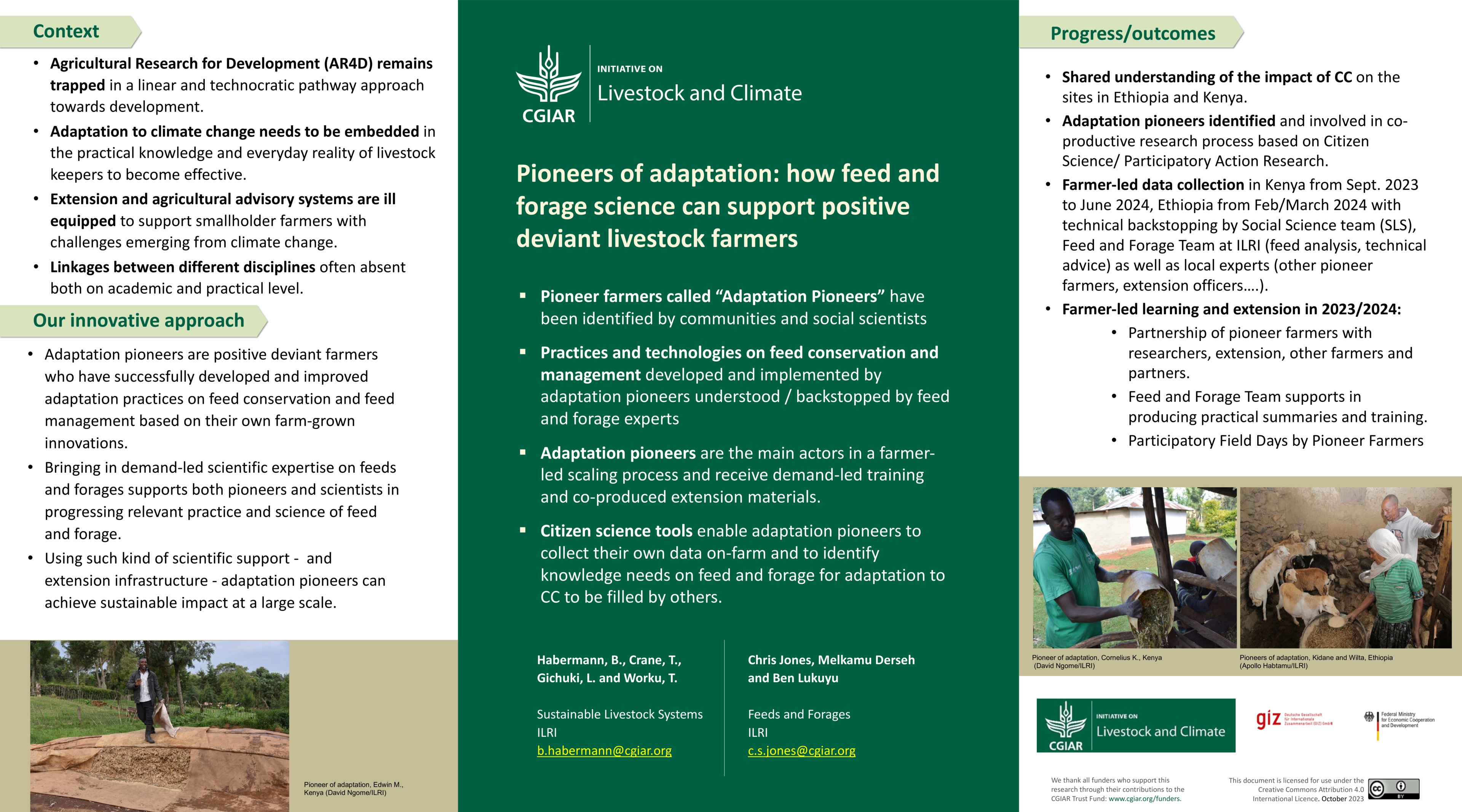
Description
Description
- Pioneer farmers called “Adaptation Pioneers” have been identified by communities and social scientists
- Practices and technologies on feed conservation and management developed and implemented by adaptation pioneers understood / backstopped by feed and forage experts
- Adaptation pioneers are the main actors in a farmer- led scaling process and receive demand-led training and co-produced extension materials.
- Citizen science tools enable adaptation pioneers to collect their own data on-farm and to identify knowledge needs on feed and forage for adaptation to CC to be filled by others.
Comments
How will you measure success (adoption increase if any)
How are you monitoring success?
Do you have a control group to which you can compare and make sure progress is quantified?
How are you monitoring success?
Beside technical package is there any financial support (giving free or subsideised seeds "input")
How is citizen science role played role in positive deviant livestock farmers?
How can such a process be replicated in the drylands? The issue of feeds and fodder is a critical one in the drylands, where there is high dependency on the intensive systems for supply. This might be a market-linkage issue, but in the drylands, is there a possibility to work together to identify entry points in some of the dryland counties in Kenya and regions in Ethiopia we work in?
No practices and technologies are presented?
What is the citizen science tool being used?
What is the number of livestock keepers targeted? And how will the pioneers be able to drive scaling? How does the approach build on existing knowledge sharing mechanisms? What sustainability mechanisms are in place? What are the criteria for being considered an adaptation pioneer?
Add new comment